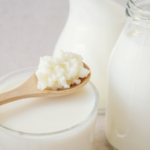Alcohol consumption is closely linked to food consumption. We all remember the old home remedy of drinking a small glass of alcohol before eating to whet the appetite. Was it just a custom or did it have some scientific basis?
Indeed, consuming low amounts of alcohol promotes appetite and can stimulate food intake. It is known that, after consumption, the correct satiety signals are not generated in the nervous system that modulates food intake in the short term, increasing total caloric intake.
On the contrary, excessive alcohol consumption over time is often accompanied by loss of appetite and malnutrition in the individual, due to the physiological changes caused by alcoholism.
What does alcohol contribute to the diet?
Alcohol is a high-calorie substance that provides around 7 kilocalories per gram of ethanol: a can of beer or a glass of wine, for example, contains around 120 calories. However, these are “empty calories” since they do not include any additional significant contribution of other macronutrients, vitamins, or minerals.
The alcohol industry, especially the wine industry, has put a lot of effort into promoting its richness in polyphenols, substances that stand out for their antioxidant properties. However, of the total average intake of polyphenols in the Spanish diet, only 8-9% comes from wine and 2% from beer. For example, an orange or an apple would provide similar concentrations of polyphenols to a comparable intake of red wine, and the average intake of bread in our diet would double this.
A particular type of polyphenol, resveratrol, has also received a lot of publicity, as wine is the most important source of it in the diet (over 98%). However, its effectiveness is easily questioned, since to achieve the preventive dose of this substance (1 g/day), one would have to drink no less than 550 liters of red wine or 1,300 liters of beer.
Alcohol consumption and a balanced diet
Moderate alcohol consumption is often included as a characteristic component in some balanced diets and even appears represented in food pyramids such as the Mediterranean diet.
However, it has been found that the higher the amount of alcohol consumed, the poorer the quality of the diet. This refers, in general terms, to a lower consumption of fruit and dairy products, and an increased consumption of animal products (meat, fish, and eggs) compared to abstainers.
In addition, consumers of large amounts of alcohol reduce their intake of carbohydrates and fiber, which can have negative consequences on the digestion process, among other aspects.
Differences are also observed according to the type of alcoholic beverage. Preferential consumers of beer and spirits tend to follow dietary patterns of poorer quality than abstainers. Regarding wine, better dietary quality has only been observed in northern Europe and the United States, while no differences are found in Mediterranean countries.
Is there a pattern of alcohol consumption associated with the Mediterranean diet?
The Mediterranean diet is considered a healthy dietary model, mainly due to its benefits in reducing mortality and its link to better general health. Traditionally, this dietary model has included moderate consumption of red wine during meals.
However, in the specific case of Spain, it has been observed that people who consume alcohol with meals follow healthy eating guidelines to a lesser extent, which are based on the main points of the classic Mediterranean diet.
Another recent national study, which assessed the adherence to the Mediterranean diet based on alcohol consumption patterns in a representative sample of the Spanish adult population, showed that the “Mediterranean pattern of alcohol consumption” was not part of the current consideration of the Mediterranean diet.
Does drinking alcohol pose a risk of obesity?
Despite the numerous studies that have analyzed the effect of alcohol consumption on obesity, scientific evidence is inconsistent. Although it is not proven that alcohol consumption is associated with weight gain per se, insufficient compensation of its energy contribution without reducing food consumption or increasing physical activity can lead to a caloric imbalance in the body. As a consequence, consumers would be more prone to weight gain.
Therefore, if you are going to consume alcohol, you should bear in mind that it only provides empty calories that affect your caloric balance, increasing your total energy intake. In addition, alcohol consumption, especially if it is done in large quantities, is associated with a poorer quality diet that favors the consumption of foods rich in protein and fat to the detriment of fruits and vegetables.
Considering that alcohol is a risk factor for numerous diseases and that any amount of alcohol increases the likelihood of developing cancer, it is sensible to follow the World Health Organization’s recommendation: “The less alcohol, the better.”![]()























+ There are no comments
Add yours